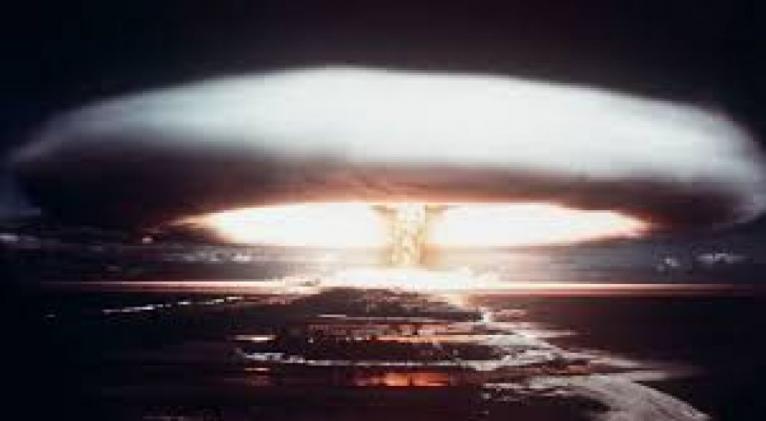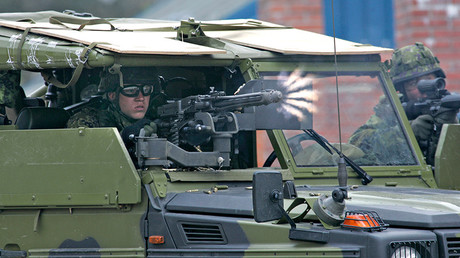Ex-general says NATO-Russia nuclear war ‘possible within a year’
especiales

General Sir Richard Shirreff, from Britain, served at the second-highest NATO military office in Europe between 2011 and 2014. He says his experience acquired in the alliance of war-gaming future conflicts helped him model the narrative for the book.
According to his scenario, starting next year Russia would first occupy Ukraine to secure a land route to Crimea and then invade the three Baltic nations, all of which are members of NATO. The move, Shirreff argued, would be driven by the perception of NATO’s weakness and Russia’s opposition to what it sees as the alliance’s attempts to encircle it.
The supposed invasion of Georgia in 2008 was Russia’s response to a Georgian attack on its breakaway region of South Ossetia, which started with the killings of Russian peacekeepers stationed there to prevent such hostilities. Russia responded by defeating the NATO-trained Georgian Army and withdrew. Moscow later recognized South Ossetia as a sovereign state, formalizing its de facto independence from Georgia that had been in place since the 1990s.
The supposed invasion of Ukraine in 2014 was Russia’s use of its troops, which were legally deployed in Crimea under a treaty with Ukraine, to prevent hostilities after an armed coup in Kiev. The Crimean people, who overwhelmingly opposed the new Ukrainian government and its nationalistic leanings, voted in a referendum to part ways with Ukraine and rejoin Russia.
If Russia used military force against any NATO members, the entire alliance would be obliged to declare war on Russia. The US is the most powerful member of NATO and has the world’s biggest military force. According to Shirreff, Russia would use its nuclear arsenal to counter NATO’s response.
“Be under no illusion whatsoever – Russian use of nuclear weapons is hardwired into Moscow’s military strategy,” he said, omitting the fact that NATO’s nuclear nations – the US, Britain and France – have always kept a pre-emptive nuclear strike as a possible option. Russia dropped its pledge not to use nuclear weapons first in 1993.
A scenario of conflict between Russia and NATO members over one of the Baltic states was earlier explored by the BBC in a film, which focused on decision-making at a British advisory body responding to the crisis. In the film, the stand-off escalated into a full-scale nuclear conflict and the advisers contemplating an option to destroy Russia’s biggest cities with Trident missiles.














Add new comment